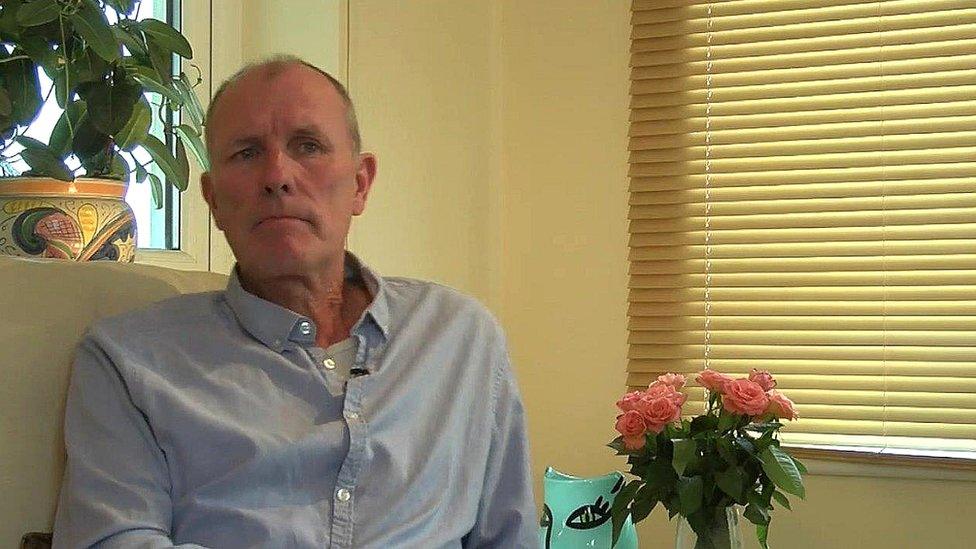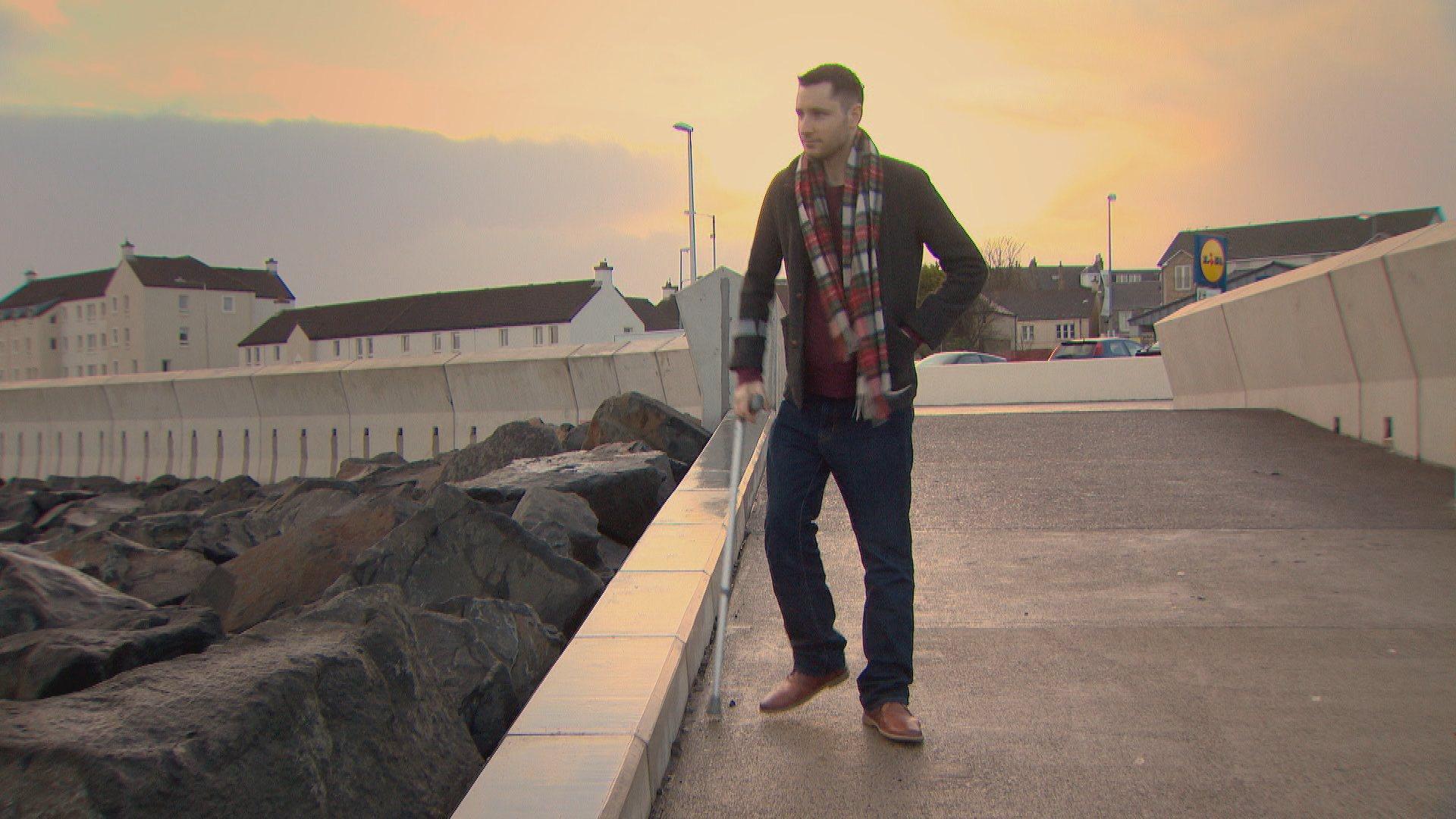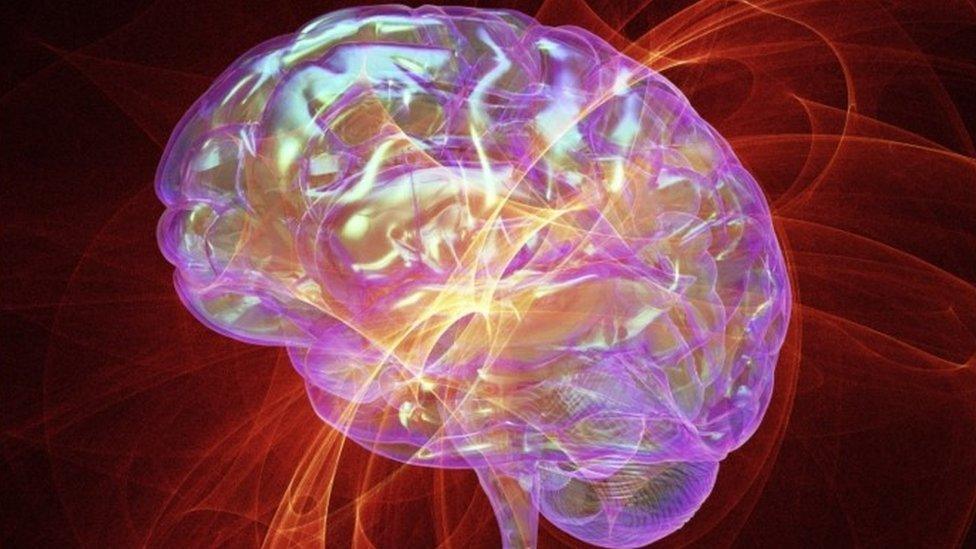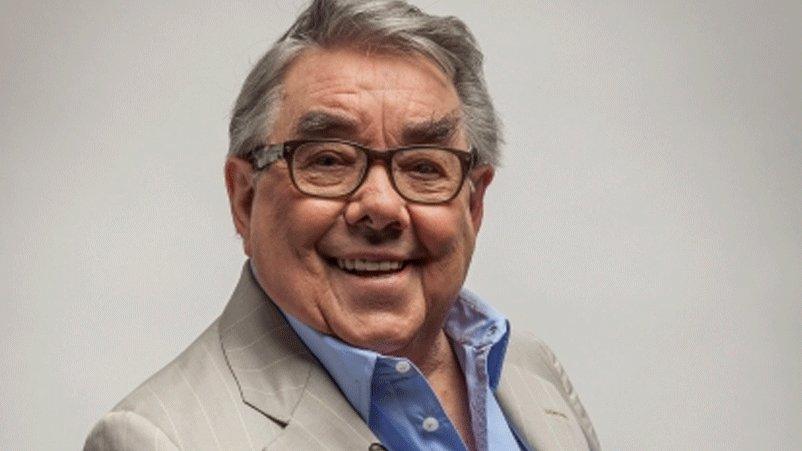Motor neurone disease patients 'face delays in seeing specialists'
- Published

One in five people with motor neurone disease (MND) waits more than a year to see a brain specialist for help with diagnosis, a snapshot survey suggests.
The MND Association report, based on responses from 900 patients in England, Wales and Northern Ireland, says the delays stop people getting early care.
While the charity accepts a diagnosis can be "notoriously difficult" to make, it urges GPs to be vigilant about MND.
GP leaders have worked with the charity on a scheme to improve diagnosis.
About 5,000 people in the UK have motor neurone disease.
It is a progressive and incurable condition causing damage to the nervous system - which can lead to problems including difficulties with walking, speaking and breathing.
More than 50% of people with MND die within two years of being diagnosed. But care - such as breathing assistance and feeding tubes - can ease symptoms.
'No single test'
The MND Association says an urgent referral straight to a neurologist (a brain and nerve specialist) is crucial to people getting appropriate help as soon as possible.
But two in five of the people surveyed said they went to their GP at least three times before a referral to a neurologist was mentioned.
About half were seen by other healthcare staff first, including physiotherapists and ear, nose and throat specialists.
Karen Pearce of the MND Association said: "The problem is there is still no single diagnostic test for MND and we appreciate that it is also challenging for GPs, who might only see one patient with MND in their whole career.
"Symptoms can be similar to other conditions so people can spend months seeing various specialists and undergoing unsuccessful treatments until MND is suspected. However, there are things we can do to improve this."


'Life-shortening disease'
Bob Keats, 61, from the Isle of Wight, was diagnosed more than a year after noticing his first symptoms. During that year he had a series of visits to doctors - including GPs and ear, nose and throat specialists - but it was his wife's dentist who eventually suggested he should see a neurologist.
He told the BBC: "I'm not critical of the process as it is such a rare disease that most doctors will not have come across it."
But he added: "MND is a real threat. It requires a higher profile and with that comes quicker recognition by doctors and neurologists and better support in terms of preparing the patient for the sad news that they have a life-shortening disease."

The association says a scheme put in place together with the Royal College of General Practitioners (RCGP) to help GPs spot signs earlier, appears to be having some success.
RCGP leader Dr Maureen Baker agreed early diagnosis was essential but said the constraints of a standard 10-minute consultation added to difficulties in reaching a diagnosis.
"When you consider that GPs across the UK make in excess of 1.3 million patient consultations every day, it brings home just how difficult identification of such a rare condition is at initial presentation."
About 900 people with the condition (28% of all those asked) responded to the questionnaire.
- Published4 January 2016

- Published26 October 2015

- Published1 April 2016
